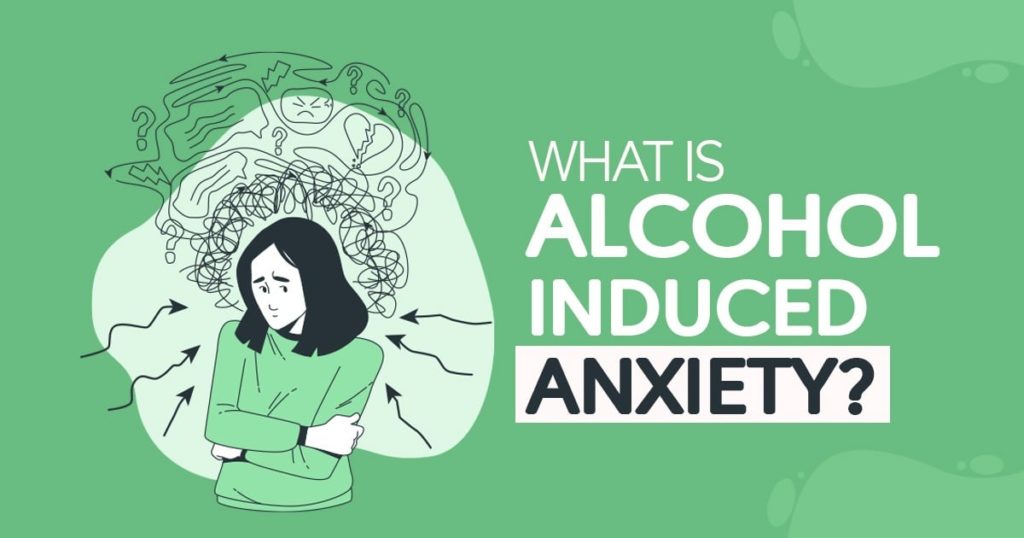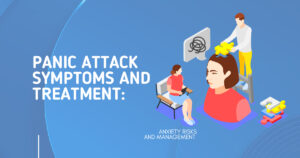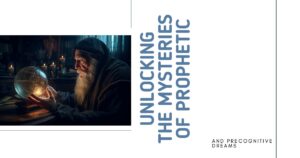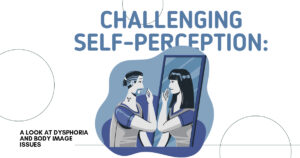Anxiety and panic episodes can result from excessive drinking. Occasionally, anxiety can be so severe that self-medication with alcohol is the only option many people consider. One can lead directly to the other if one simultaneously suffers from alcoholism and anxiety. Although the two have a complicated relationship, there are explanations for it.
Anxiety and stress are two of the most typical motivations for drinking. Anxiety relief might come from drinking alcohol, but it could also lead to long-term problems and dangerous panic episodes. When alcohol-induced anxiety and panic attacks become common, it is a sign of a more serious condition.
Does Alcohol Cause Anxiety?
Social anxiety, generalized anxiety, and panic disorders are among the most prevalent conditions for which people self-medicate with alcohol. As many as one-quarter of those with panic disorder had previously struggled with alcoholism.
Anxiety and alcohol are not only linked, but they also feed off of one another, creating a self-perpetuating loop. Anxiety causes someone to begin drinking, exacerbating their anxiety and leading them to drink even more.
Alcohol harms hormones, cognitive function, and sleep, contributing to anxiety. It is common for people to become irritated and on edge if they haven’t had a chance to sleep.
Also, Post Traumatic Stress Disorder can be caused by long-term alcohol consumption and panic episodes. This is much more true for individuals with anxiety or panic disorders. Alcohol not only makes people more anxious but also changes the region of the brain that helps people deal with fear. Since fear-inducing connections are difficult to shake, a person’s recovery from trauma is more difficult.
In addition, there is evidence that long-term alcohol addiction can cause long-term anxiety.
Mental Health Center of San Diego
How Does Alcohol Induce Anxiety?
Anxiety or panic attack, whether induced by alcohol or not, is a period of intense anxiety characterized by exaggerated and dreadful feelings. Difficulty breathing or hyperventilation may occur, as well as a sense of disassociation from reality. Worrying thoughts and anxieties, even about things that don’t pose an imminent threat, fill the brain.
There are several reasons why alcohol is a factor in this situation. For example, liquor dehydration, hypoglycemia, and an accelerated heart rate are all documented physiological effects of drinking. Anxiety, dizziness, and irritability may occur and lead to an anxiety attack. This isn’t solely due to the excessive use of alcoholic beverages. Drugs like coffee and sugar can have the same effect if taken in excess.
Moreover, GABA (an inhibitory neurotransmitter in the brain) has a calming effect on people who drink. It has a sedative and depressive effect. Anxiety, exaggeratedness, and excessive stimulation occur when GABA levels fall after alcohol consumption.
Similar fluctuations occur in the levels of serotonin. Whenever a person drinks, their blood alcohol levels rise, and they fall when they abstain. Regular alcohol consumption might destabilize GABA and serotonin levels, exacerbating withdrawal and anxiety symptoms.
Furthermore, biofeedback causes the brain to perceive these symptoms as stress and concern, even if there is no obvious cause. Thus, those who experience them are quickly irritated by trivial matters. Anything like this would have gone unnoticed in the past, but now it causes anxiety. Also, Blackouts can heighten anxiety, especially if poor judgment is involved.
Is Alcohol Induced Anxiety a Symptom of Alcohol Addiction?
Addiction can occur due to the alcohol-anxiety cycle, which feeds on itself, and eventually encourages an individual to drink more. People who self-medicate with alcohol are at risk of developing major health issues. Having alcohol-induced anxiety episodes frequently is an indication of an addiction.
Anxiety episodes caused by alcohol can be frightening, and you may consider cutting back on your drinking. A hangover-related alcohol anxiety episode is also a warning indicator. Another thing to keep an eye out for is a rise in anxiety and alcohol-induced anxiety attacks. These are signs that either the amount you drink is getting higher or the effects of drinking have already started to reflect on your brain.
You should seek assistance if you cannot reduce your drinking despite frequent anxiety episodes or hangovers.
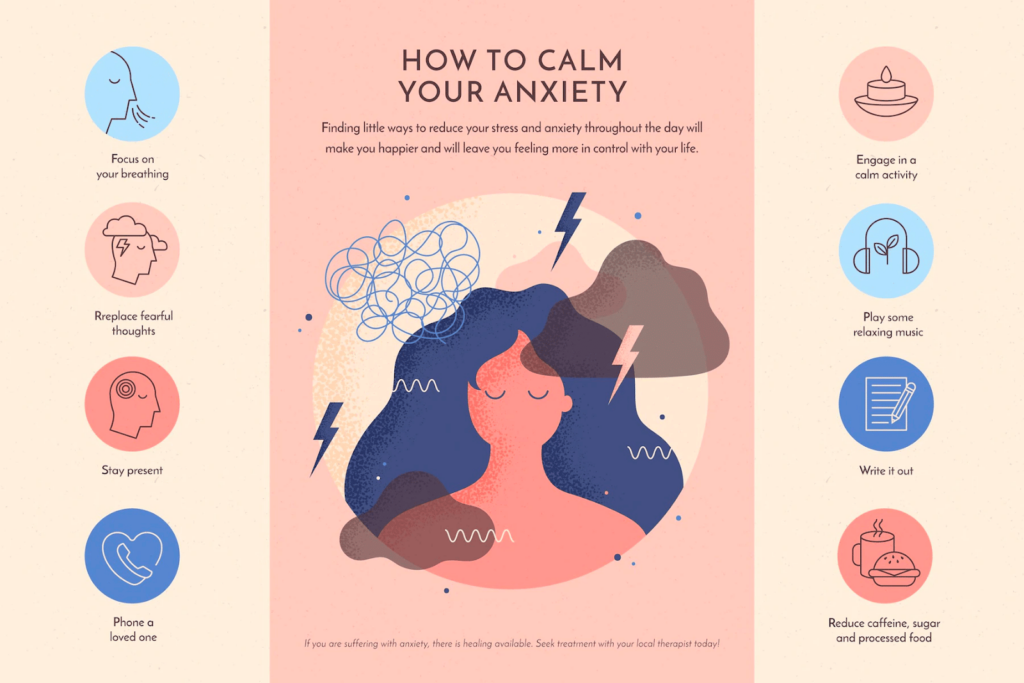
How to Handle Anxiety Attacks Caused by Alcohol
In the event of alcohol-induced anxiety, it would be imperative that you follow the proper procedures for you to calm down. While dealing with a panic attack is critical, so is acknowledging the circumstance and the fear you’re experiencing. Recognizing what’s going on will help you understand the issue and realize it will pass.
Speak to a Friend
Stay with a friend who understands your situation, or talk to them. If you’re looking for a diversion, this could be the answer. Do something relaxing if you can’t get your mind off the situation. Simple relaxation techniques, such as deep breathing and meditation, can be quite helpful in relieving stress.
Mental Health Center of San Diego
Sleep or Take a nap
If you’re suffering from a hangover, getting some shut-eye can help. Panic-inducing symptoms can be alleviated and panic attacks prevented by getting enough sleep. Refueling your brain and body with water and easily digestible carbs can help prevent and treat hypoglycemia. To the dismay of those who believe otherwise, common stimulants like caffeine, sweets, and even smoking can aggravate a hangover or anxiety.
Eat a Well-Balanced Diet
Ensure you receive enough nutrition and exercise if you suffer from severe panic and anxiety episodes. Mental stability necessitates a steady supply of glucose in the bloodstream. Anxiety can be alleviated by psychotherapy and mindfulness meditation.
Review your Drinking Habits
If you suspect that your anxiety episodes are caused by alcohol, you may want to reevaluate your drinking habits and think about cutting back.
Seek the Advice of a Specialist
Consult a professional or call a hotline such as The Samaritans or Alcoholics Anonymous(AA) if you’re concerned about your alcohol consumption and don’t think you can quit. Our Specialists are also ready to help you overcome alcohol-induced anxiety episodes.
Mental Health Center of San Diego
Getting Anxiety Treatment in San Diego
Anxiety is a normal emotion that we all experience at one point or another. It’s what we feel when we’re faced with a challenging situation, and it can motivate us to take action. However, for some people, anxiety can become so excessive and persistent that it interferes with their daily lives. If left untreated, anxiety can lead to other mental health problems, such as depression or substance abuse. That’s why it’s so important to seek professional help at MHC San Diego if you’re struggling with anxiety.
Call 858-465-7722 and a clinical professional at the Mental Health Center of San Diego can assess your symptoms and provide you with the tools and resources you need to manage your anxiety. We can also create a treatment plan that is tailored to your unique needs. By working with a clinical professional at MHC SD, you can learn how to control your anxiety and live a healthy, happy life.





